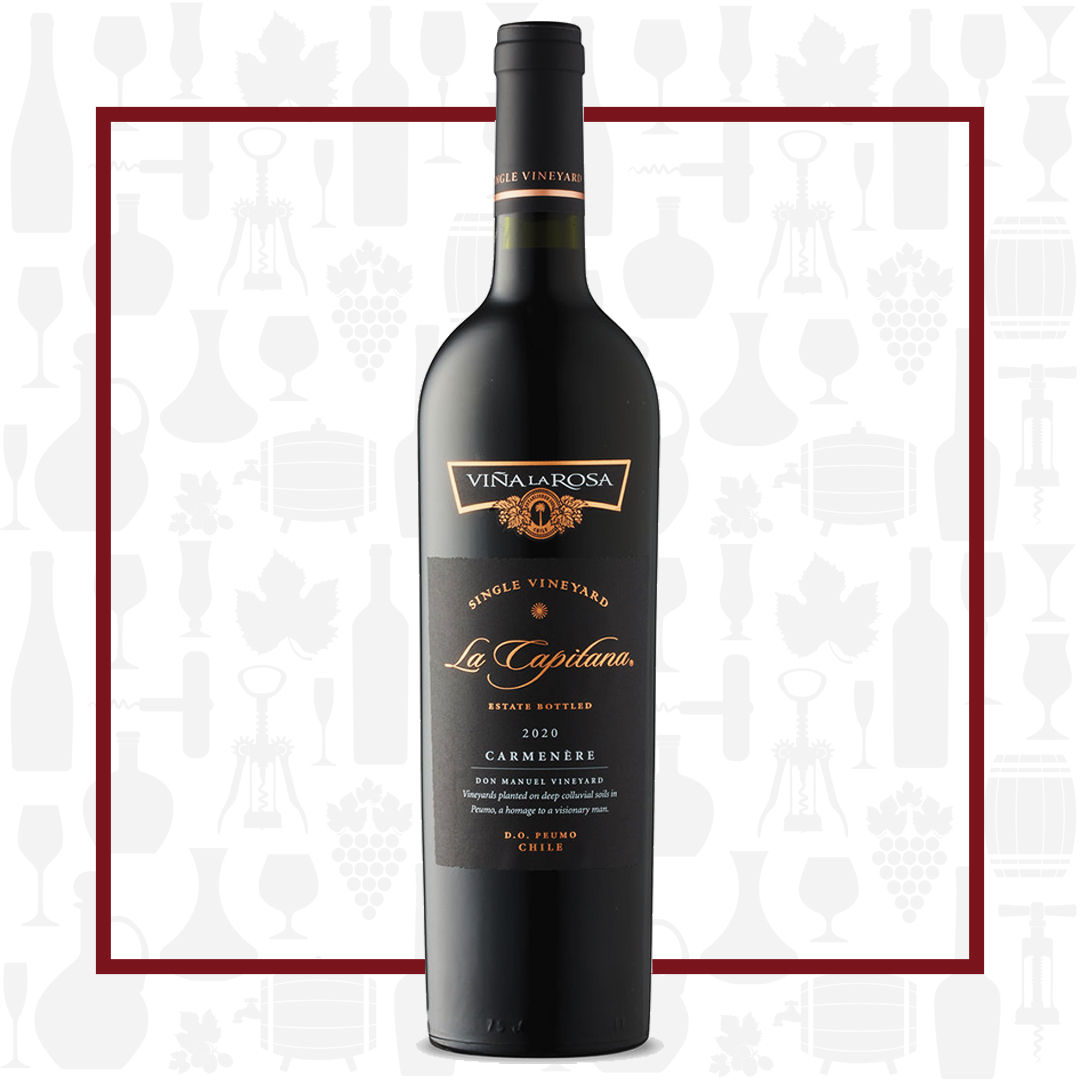Cellar Profile
6th Generation winemakers, the Ossa family, purchased their first parcel of vines in Puemo, Cachapoal Valley in 1824, and are still bottling wines on the estate today. Using a fusion of the most modern techniques, as well as processes steeped in Chilean tradition, Viña la Rosa is one of the most highly-acclaimed Chilean wineries. Puemo is known as one of the best sites on earth for Carménère, and theirs is proof positive of that, with their top bottling, “La Rosa”, displaying the complexity and power the variety can offer when given proper care. Currently under conversion to organic, they have a firm commitment to sustainability, particularly where it comes to their usage of water. Winemaker Gonzalo Carcamo has been at the helm since 2011 and has imprinted his own personal stamp on the wines. Elegance, acidity and fully developed tannins are his hallmarks. The climate is Mediterranean, close to the Pacific Ocean. Stiff breezes during the day and huge temperature shifts in the evenings cool the grapes and allow for a long, slow ripening of the skins. Already well known for producing affordable wines of exceeding quality, Gonzalo’s premium, single vineyard offerings, which retain their price-to-quality ratio, are now the primary focus for the winery.
Region
Puemo is a highly regarded sub-appellation of the Cachapoal Valley. Following the corridor formed by the Cachapoal River, it is inland from the cool Pacific Ocean, allowing for more moderate temperatures than the coast. Its elevation and proximity to the high peaks of the Andes mean that there are huge diurnal temperature drops in the evenings to ensure acid balance. Most of the rains fall during the cool winter months, with frequent periods of drought during the extended growing season. The soils here have a fair amount of clay, with solid water retention, allowing wineries to dry farm if they wish to put the care in. Many of the finest examples of Carménère in the world can be found in this tiny appellation, as the long warm days and cool evenings allow for the long hang times needed to fully ripen these grapes.
Vineyard
Started in 1824, the Estate vineyards have been carefully mapped and observed in order to maximize the terroir. Sitting on alluvial soils of granite and sand, with clay, they are maintained ecologically, without pesticides, and farmed using organic principles.
Winemaking
Hand-selected bunches from the best old vines in the Don Manuel Estate Vineyard. Fermented in stainless steel to preserve primary fruit, with daily pumpovers, followed by a year in French oak barrels. Bottled unfiltered.
Varieties
Carménère is one of the “lost” Bordeaux grape varieties, once widely grown in the Medoc. A crossing of Cabernet Franc and Trousseau, this interesting grape was shipped as Merlot to Chile 150 years ago, where it was known as Merlot Peumal (after Puemo, where there were heavy plantings) until the 90s, when it was rediscovered. This is especially important, as phylloxera had wiped out almost all traces of it in France. Carménère needs moderate or warm climates to fully ripen or it can give vegetal and green notes to a wine. These wines tend to be medium-bodied, with red fruit and spice characteristics, however brawnier, more robust examples are possible when given proper care in the vineyard.
Tasting Notes
A lighter expression of Carménère than the “La Rosa’, this is still quite full-bodied. Aromas of ripe raspberry, cedar, sour cherry and spice replay on the palate along with notes of vanilla and toast. The tannins are mild. The structure comes as much from acidity as from grip. Serve alongside grilled ribs or with a good steak.

